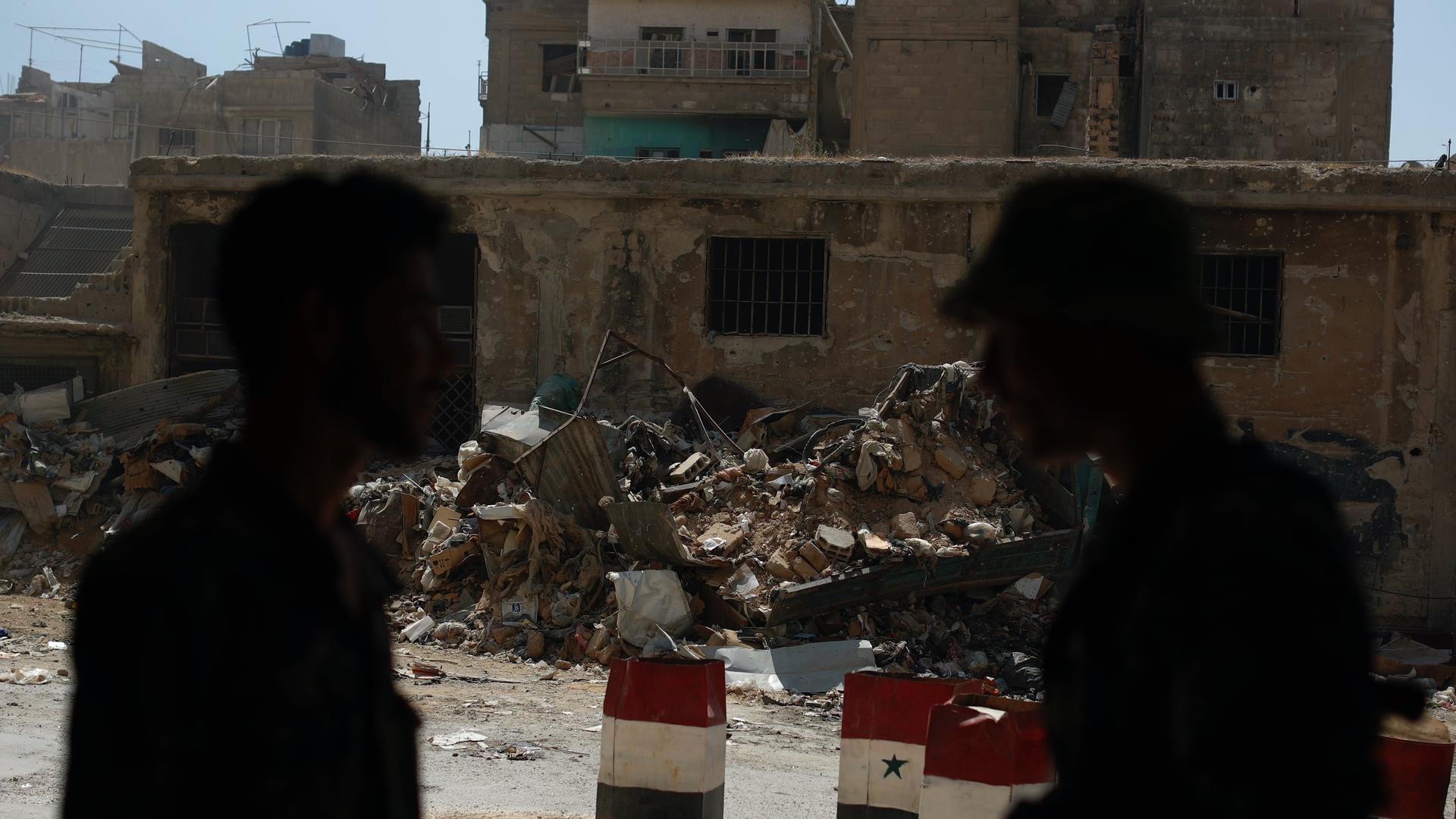‘I wished to die’: Syrian American sues Syria’s government over alleged torture
Obada Mzaik was detained in Syria by the government after participating in a protest in 2012. It was nearly a year after Syria’s civil war began.
Mzaik said he still remembers the sounds of other detainees being held at the Air Force Intelligence Branch at the Mezzeh Military Airport, in Damascus, Syria.
“I can hear the screaming, shouting. One night, I heard a small kid, I don’t know his age but he was shouting … asking for his mom to help him out,” he said from his home in Columbus, Ohio.
More than a decade later, Mzaik is filing a lawsuit against the Syrian government for the treatment — including torture — which he said he endured in detention.
“I should have done this a long time ago, but I didn’t feel safe and secure before that. Now, I feel more secure and I feel more of a sense of responsibility to hold the Syria regime accountable,” he said about the lawsuit.
Mzaik was born in the US but moved to Syria with his parents when he was 4 years old. He was studying civil engineering when pro-democracy protests began in the country in 2011.
Mzaik was arrested and released after about a month for allegedly taking part in the demonstrations. But a year later, he got arrested again. This time, Mzaik said that he went through long hours of interrogations and was tortured.
He was moved from one detention facility to another and was kicked and punched, and beaten with a PVC pipe.
At times, Mzaik said, “I wished to die.”
He was finally released, 23 days later, after his dad paid off some officials.
Making a legal case
Daniel McLaughlin, one of Mzaik’s lawyers, said there have been other cases against the Syrian government in US courts.
For example, in 2019, a US court ordered the Syrian government to pay $300 million for the death of journalist Marie Colvin, which was ruled as part of a criminal suit to be an extrajudicial killing.
But McLaughlin explained that what makes Mzaik’s civil case different is that it “targets the responsibility of the Syrian regime for the state’s policy of detention, torture, enforced disappearance and execution of those who are seen as a threat to the regime.”
He added that this suit is part of a broader constellation of accountability efforts, some of which are ongoing in the US and Europe.
Cases against nations are difficult to bring forward in the US because foreign sovereigns are immune from being sued. But there are exceptions for countries that the US calls state sponsors of terrorism — like Syria.
It is unlikely that the Syrian government will defend itself in a US court. But McLaughlin said it’s important for these cases to be heard in court.
“Also, in the current context, there’s been a push towards a renormalization of the Assad regime at the international level, and so, we’d think that having a US court document that there was a systemwide policy of detention, torture, extrajudicial killing, that that could help combat against the push towards the rehabilitation of the Assad regime.”
‘Saying the truth about what happened’
Many families who lost loved ones during the civil war, or are still searching for them, say they welcome any effort to hold Syrian President Bashar al-Assad and his officials accountable.
According to The Center for Justice and Accountability in San Francisco, which is involved in Mzaik’s case, more than 130,000 Syrians remain missing or detained.
Hala, who lives in the UK and asked that The World only use her first name because her family is in Syria, said her brother disappeared on April 13, 2013.
Hala was an activist and involved in the peaceful demonstrations that began in 2011.
Her brother, Subhi, was 21 and studying mechanical engineering. He had just received a scholarship to study in Germany.
“He’s so clever, intellectual and he’s just [such] a good person,” she said.
According to Hala, Subhi didn’t take part in the protests like she did. That’s why all these years, she has been puzzled about why he would be the one targeted.
“It should have been me, not him. So there’s an element of guilt,” she added.
Through therapy, she said that she has come to realize that the Syrian government is responsible, not her.
Hala’s family paid huge sums of money to people who claimed to have information about her brother, which turned out to be false.
“So, not even that they were trying to take money, they were playing with my mom’s feelings and hearts,” Hala explained.
Hala said she is glad that Mzaik has brought his case to a US court. But she is also managing her expectations. She knows these cases aren’t going to bring the detainees home.
“For me, it’s more about preserving our narratives, saying the truth about what happened, telling the world about our suffering.”
She hopes that as countries rush to reopen embassies and restore ties with Syria, they’re also reminded of the stories of thousands of Syrians like her brother who are still missing or detained.
The World is an independent newsroom. We’re not funded by billionaires; instead, we rely on readers and listeners like you. As a listener, you’re a crucial part of our team and our global community. Your support is vital to running our nonprofit newsroom, and we can’t do this work without you. Will you support The World with a gift today? Donations made between now and Dec. 31 will be matched 1:1. Thanks for investing in our work!
